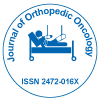Наша группа организует более 3000 глобальных конференций Ежегодные мероприятия в США, Европе и США. Азия при поддержке еще 1000 научных обществ и публикует более 700 Открытого доступа Журналы, в которых представлены более 50 000 выдающихся деятелей, авторитетных учёных, входящих в редколлегии.
Журналы открытого доступа набирают больше читателей и цитируемости
700 журналов и 15 000 000 читателей Каждый журнал получает более 25 000 читателей
Индексировано в
- Google Scholar
- РефСик
- Университет Хамдарда
- ЭБСКО, Аризона
- OCLC- WorldCat
- Публикации
- Евро Паб
- ICMJE
Полезные ссылки
Журналы открытого доступа
Поделиться этой страницей
Абстрактный
Surgical Site Infections in Treatment of Musculoskeletal Tumors: Experience from a Single Oncologic Orthopedic Institution
Barbara Rossi, Carmine Zoccali, Luigi Toma, Virginia Ferraresi and Roberto Biagini
Objective: Limb-sparing surgery is the mainstay treatment for musculoskeletal tumors thanks to advances in surgical techniques, imaging modalities and multimodal therapies. As patients survive longer, plastic reconstructive procedures and revision surgery are increasingly required after tumor excision. Infection rate is reported to be up to 20% after prosthetic replacement and 30-44% after pelvic resection. The purpose of this study was to investigate the incidence of surgical site infections (SSIs), identifying the causative microrganisms related to specific surgical procedures and significant risk factors for SSIs. Methods: We retrospectively reviewed 723 interventions performed between 2009 and 2015 for oncological conditions. Non neoplastic lesions, aseptic wound complications, non-skeletally mature patients were excluded. Standardised antibiotic prophylaxis was used for different surgical procedures and maintained until removal of surgical drains. Results: Without considering tumor types and surgical sites, the overall infection rate was 8.7% (63/724). Infection occurred in prosthetic reconstruction with an incidence rate of 7.8%, whereas almost half of patients having undergone pelvic surgery got infected and about 20% of patients with spinal surgery and amputations were infected. Pelvic location, malignancy and radiotherapy were related to a major risk of SSI. The causative pathogens were detected in all examined cases. The most frequent pathogens detected by culture included Staphylococcus aureus (27 cases, 47.4%) and S. epidermidis (10 cases, 17.5%). Among the S. aureus cases, 10/27 cases (37%) were methicillin-resistant S. aureus (MRSA). Sixty-three out of 130 microbial isolations (47.7%) were nosocomial ALERT organisms. Conclusion: Oncologic orthopedic surgery is burdened by frequent and challenging SSIs because of extensive soft tissues dissection, long operative times and poor skin conditions. Patients are immunosuppressed and often have concomitant comorbidities predisposing to SSIs. Monitoring of local bacterial aetiology of SSIs could help orthopedic oncologic specialized centres in achieving the optimisation of antibiotic prophylactic regimens.
Журналы по темам
- Биохимия
- Ветеринары
- Генетика и молекулярная биология
- Геология и науки о Земле
- Еда и питание
- Иммунология и микробиология
- Инженерное дело
- Клинические науки
- Материаловедение
- медицинские науки
- Науки об окружающей среде
- Общая наука
- Сельское хозяйство и аквакультура
- Социальные и политические науки
- Уход и здравоохранение
- Фармацевтические науки
- Физика
- Химия

 English
English  Spanish
Spanish  Chinese
Chinese  German
German  French
French  Japanese
Japanese  Portuguese
Portuguese  Hindi
Hindi